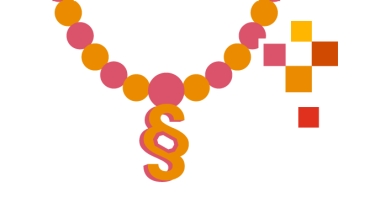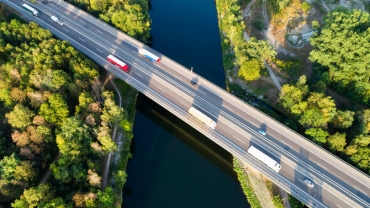
Your expert for questions

Andreas Feiner
Partner, Sustainability Services at PwC Germany
Phone: +49 171 8404662
Email
How to minimise the risk of contributing to global deforestation
Are you familiar with the European Deforestation Regulation (EUDR)? Do you know whether and how the regulation applies to you?
The EU regulation on deforestation-free supply chains, which went into effect at the end of June 2023, requires companies to fulfil due diligence obligations to reduce global deforestation. The deciding factor is the “deforestation status” of production areas as of December 30, 2020, which must be verified along the supply chain.
“In the case of non-compliance with the EUDR, companies could face fines exceeding four percent of their annual turnover.”
Understanding the extent of their products’ implications under the EUDR is crucial for companies, whether as operators or traders. This knowledge allows companies to navigate the market and trade relevant commodities such as coffee, cocoa, cattle, palm oil, soy, rubber, and wood, along with over 800 derived product categories within the EU.
What we offer
Get to Know Our Team
Analyse Supply Chains, Identify Gaps and Minimise Risks
Like the Supply Chain Due Diligence Act (LkSG), the focus is shifting to the traceability of the entire supply chain and extensive due diligence obligations are arising including, provision of geolocation of areas of origin, ensuring deforestation-free production and compliance with the legislation of the country of production. For companies, this means they must precisely analyse the supply chains for certain product groups which, may lead to numerous questions:
- Do you know the EUDR exposure of your company and its product groups and commodities?
- Can you trace your procured commodities back to the area of production?
- Do you know if the production was compliant with all the legislation of the country of production?
- For certain commodities or products, can you substantiate that their production has not contributed to deforestation or forest degradation?
- What steps are necessary to meet the EUDR requirements?
Frequently asked questions
Our services
- Impact and gap analysis
- Strategic planning and measures
- Operationalisation – implementation and control
- EUDR reporting obligation
- Legal advisory and synergies
Impact and gap analysis
Our initial step involves a thorough analysis of the affected products and entities within your organization. This foundational analysis helps us identify any data gaps that may exist. Additionally, we conduct an in-depth review of your existing system landscape and processes. Our goal is to propose resource-efficient and technology-driven strategies from the outset.

Webcast recording (German): Deforestation-free supply chain – challenges for industry and retail
In our webcast about deforestation-free supply chains and its challenges for industry and retail we provide an overview of the background and requirements facing your company so that you can prepare for the EUDR and identify areas where action is needed. Please note that at the end of December 2024, the EU agreed on a 12-month postponement of the start of application of the EUDR. The dates stated in the webcast are therefore no longer valid. The webcast is held in German.
Your added value
With our holistic approach, we provide you with support throughout the entire process to meet the requirements of the EUDR. From identifying the products and business units affected by the EUDR, prioritising and strategically addressing existing gaps, to the optional design of your due diligence system, through to operationalisation and reporting – our experts are at your side with reliable advice and information.
Contact us











